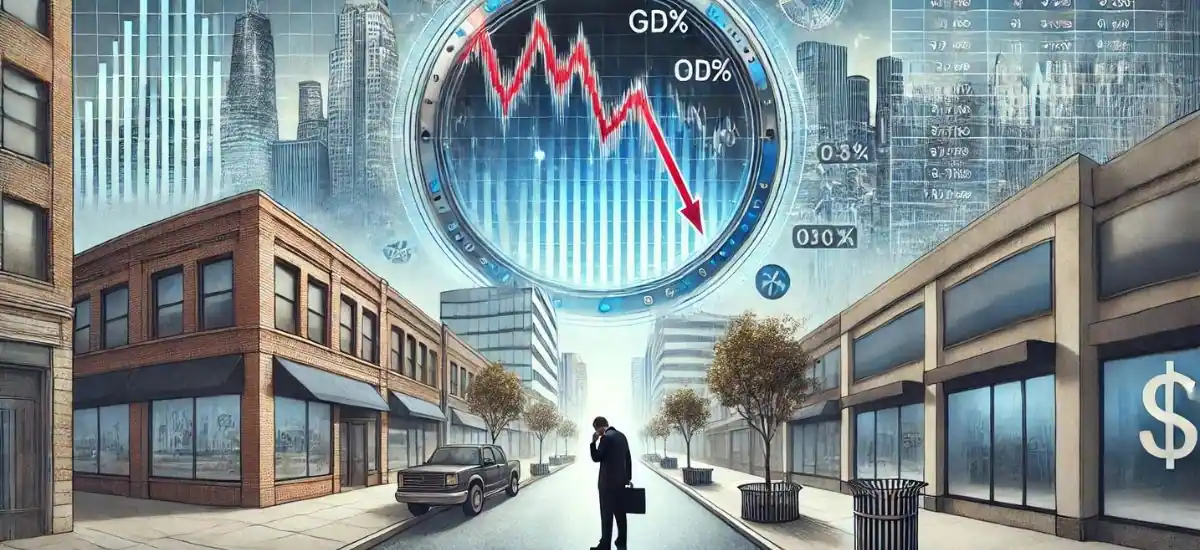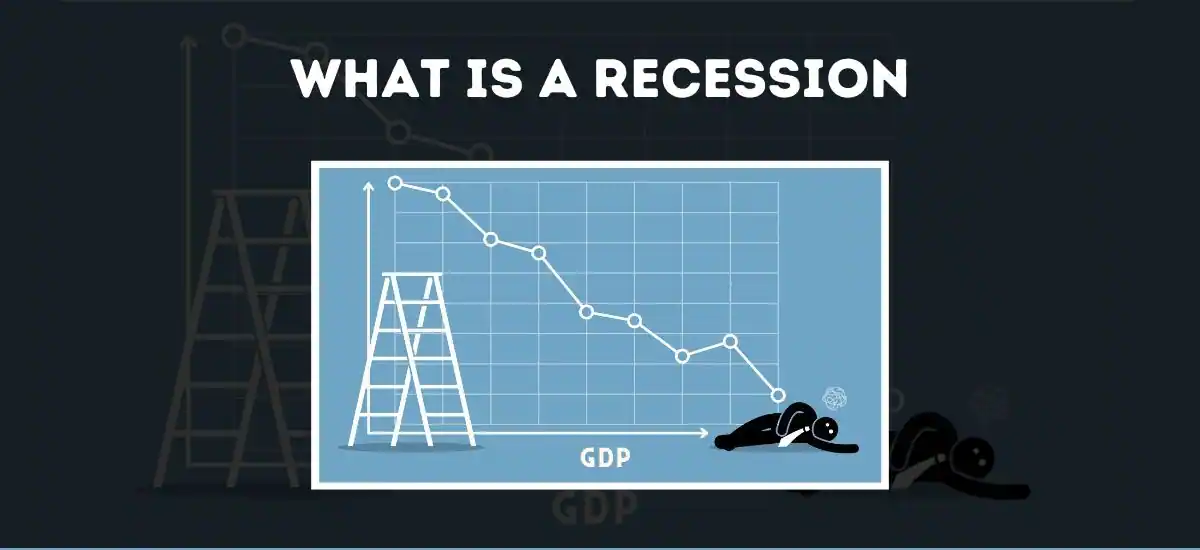Ever noticed how sometimes it feels like everyone is tightening their belts, and news headlines are filled with talks of economic downturns? Understanding the rollercoaster ride of our economy isn’t just for the Wall Street experts—it’s crucial for everyone. Let’s dive into the what, why, and how of recessions, making sense of these economic puzzles in simple terms.
Defining Recession
A recession is like the economy catching a cold. Technically, it’s defined as a significant decline in economic activity spread across the economy, lasting more than a few months. It’s typically visible in real GDP, real income, employment, industrial production, and wholesale-retail sales. Think of it as a time when the economy shrinks instead of grows, affecting everything from job numbers to how much people are spending.
- Criteria for a Recession: Economists often say a true recession is when GDP (the total value of everything produced by all the people and companies in the country) falls for two consecutive quarters.
- Recent Example: The COVID-19 pandemic led to a sharp and quick recession in 2020, showing just how quickly a booming economy can hit a snag.
Causes of a Recession
What tips the economy into a recession? It’s usually a mix of several factors rather than just one. Here’s the lowdown on some of the usual suspects:
- High Interest Rates: When borrowing costs rise, consumers and businesses cut back on spending and investing. It’s like putting the brakes on economic activity.
- Reduced Consumer Confidence: If people are worried about their jobs or future, they’re likely to tighten their purse strings, which can slow down the economy. It’s a classic case of “better safe than sorry.”
- Falling Real Wages: Less money in people’s pockets means less spending, and that’s no good for businesses.
Indicators of a Recession

When the economic weather starts to look gloomy, there are a few telltale signs that a recession might be on the horizon. Keeping an eye on these indicators can help you brace for what’s coming:
- Decline in GDP: This is the big one. A decrease in the Gross Domestic Product over two consecutive quarters is considered the hallmark of a recession.
- Rising Unemployment Rates: As businesses feel the pinch, jobs can become scarce. An uptick in unemployment is a clear indicator that the economy is under stress.
- Lower Retail Sales: When wallets snap shut, retail sales dip. This is a direct reflection of reduced consumer confidence and spending.
These indicators are like the economy’s check engine lights. When they flash, it’s time to buckle up and prepare for a rough ride.
Impact of a Recession
A recession isn’t just a statistic in an economic report; it’s a phenomenon that touches everyone. Here’s how a typical recession might affect various aspects of life and the economy:
- Household Impact: Families may face job losses, reduced income, and tighter budgets. It’s a time when coupon clipping becomes more of a necessity than a hobby.
- Business Squeeze: Companies big and small might see declining profits, leading to cost cutting, which often includes layoffs.
- Long-term Effects: Some industries might take years to recover, while others could permanently shrink, leading to shifts in job markets and consumer habits.
Recessions reshape the landscape of our economy and society, often setting the stage for recovery and growth that follow. They remind us that, like seasons, economic conditions are cyclical and subject to change.
Historical Examples of Recessions
To better understand recessions, it’s helpful to look at past examples. Each one has its unique causes and consequences, providing valuable lessons for the future:
- The Great Depression (1930s): Perhaps the most infamous of all economic downturns, this decade-long recession reshaped government policy and economic theory.
- The Global Financial Crisis (2007-2009): Triggered by the collapse of the housing bubble in the United States, this recession saw massive bailouts and led to global economic slowdowns.
Recovery from a Recession

Navigating out of a recession isn’t quick or easy, but with the right strategies, economies can and do bounce back. Here’s what recovery typically involves:
- Government Intervention: Policies aimed at stimulating economic growth are crucial. This could mean everything from cutting interest rates to increasing government spending.
- Consumer Confidence Rebounds: As the economic climate improves, so does consumer confidence, which in turn encourages spending and investment.
- Job Market Recovery: Businesses start hiring again as they regain confidence in the economy, leading to a decrease in unemployment rates.
Recovery is like the sun coming out after a storm, but it doesn’t happen overnight. It’s a gradual process that builds momentum as confidence and investments return to the market.
Current Economic Outlook
Keeping an eye on the current economic indicators is essential for understanding where we are in the economic cycle:
- Economic Forecasts: Analysts provide predictions based on current data, which can offer insights into whether we’re heading towards a recession or if recovery is just around the corner.
- Expert Opinions: Economists and financial experts analyze trends and offer their perspectives, which can help businesses and individuals make informed decisions.
Frequently Asked Questions
Q1. What can individuals do to prepare for a recession?
Ans: Save more, spend less, and diversify income sources to cushion against potential job losses or reductions in income.
Q2. How does a recession differ from a depression?
Ans: A depression is more severe, characterized by longer-lasting economic decline and a greater decrease in GDP.
Q3. Can a recession have any positive effects?
Ans: Interestingly, recessions can lead to increased innovation and efficiency in businesses, as they look to cut costs and remain competitive.
Conclusion
Understanding recessions is crucial for anyone looking to navigate the complexities of the economy. Whether you’re a student, a professional, or just a curious individual, grasping these concepts can help you make better financial decisions and prepare for future economic downturns. Remember, the more informed you are, the better equipped you’ll be to weather any economic storm.


